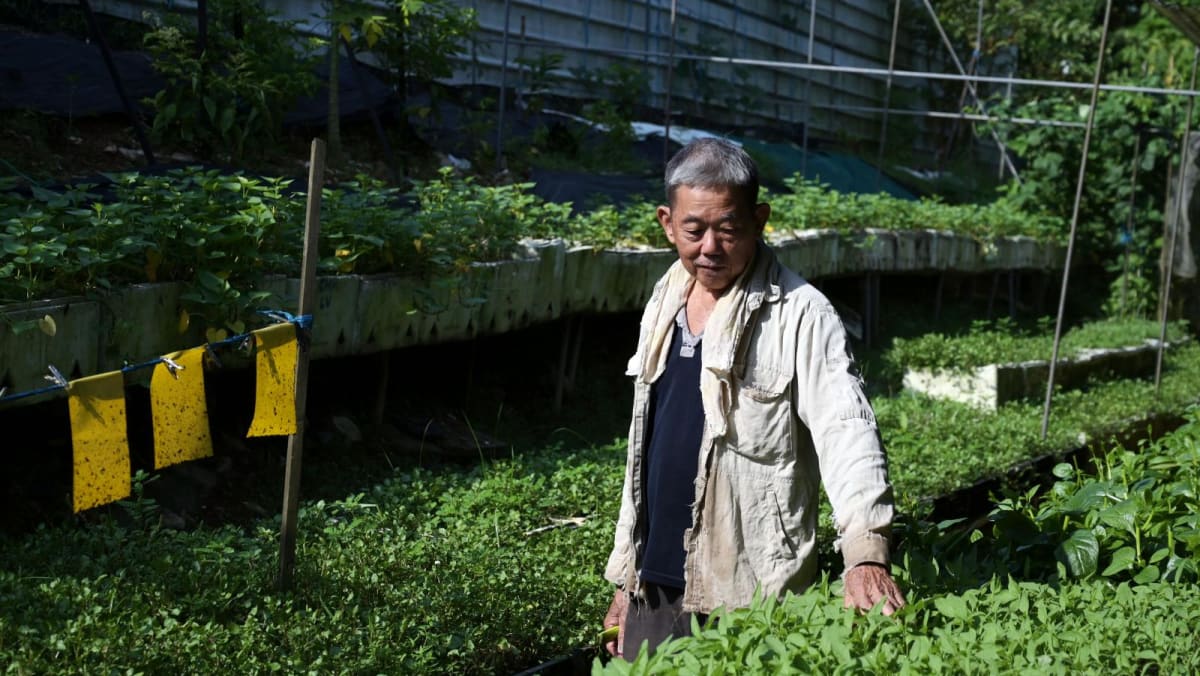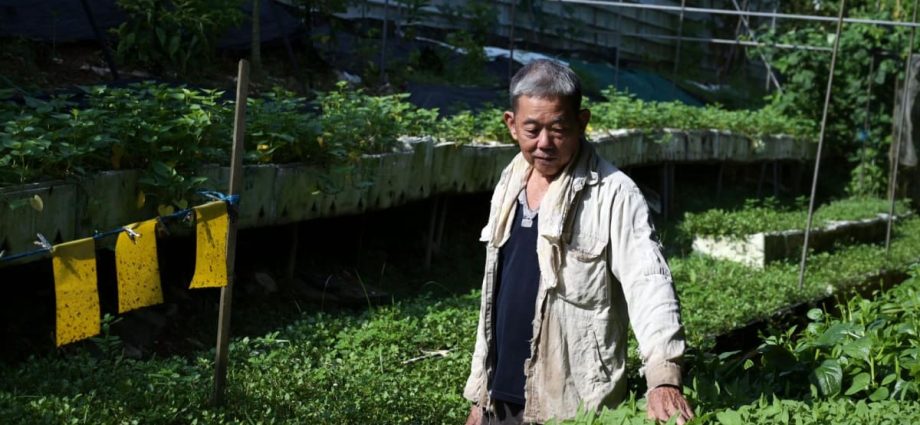
Farms here are also dealing with rising material and energy costs since Russia invaded Ukraine.
“There were times when the electricity rates were so high that the more we grew, the more the company lost,” said Mr Lee Yuan Hao of GKE Agritech.
PRICE A “BOTTLENECK”
Despite these challenges, local farms and experts CNA spoke to said it is imperative Singapore builds up the capacity to grow its own food.
The country has to be ready as food prices will rise in the long run and supply will be disrupted by climate change, they said.
Price is the “bottleneck” for consumers when it comes to buying local over imported, said Nanyang Technological University’s (NTU) Professor William Chen.
But this may not be the case for long. With global warming and extreme weather events on the rise, the yield of imported vegetables – grown on traditional weather-dependent farms – will decline.
This will lead to price hikes or even a shortage of vegetables that can be imported into Singapore, said Prof Chen, the director of NTU’s food science and technology programme.
“It is important that we show support for our local farms, keep them in the business and make locally produced vegetables as a viable option for our own benefit.”
Farms here may not be able to compete with imports on price, but there are advantages to buying local, Meod’s Mr Ong said.
“In Singapore, we have a more sustainable way of growing our produce. We are mindful of electrical consumption, water consumption, chemical usage, and we are pesticide-free. These are all the standards that local firms are trying to apply to have a differentiated product from imports,” he said.
The other factor is freshness, he said. “Generally we harvest on the same day and deliver within the same day … the produce is of better quality and lasts longer, and it tastes better.”
BANDING TOGETHER
With local farms already struggling with high manpower and energy costs, they would not be able to lower their prices to match those of cheap imports, said Ms Nichol Ng, CEO of FoodXervices, which supplies goods to F&B businesses.
“I continuously see many more farms shutting their doors in the last two, three years. Even those that are surviving, maybe the slightly larger ones or the ones that are well-funded, they are also finding it difficult to maintain the operations,” said Ms Ng, a vocal advocate for local produce.
But she thinks that as sustainability becomes more important for businesses and consumers, they will start to see the value in having food supplies from local sources with a lower carbon footprint.
A few interviewees said one way to boost demand was to have orders from large organisations such as major hotel chains, SATS or the armed forces.
Another way forward is to promote more cooperation among local farm players, said Ms Ng. “When you look at Australia or even in France, for example – they have this co-op mentality … They will band together to ensure that they survive, but in Singapore we have not managed to achieve that yet.”
Some farms like Livfresh are in favour of this.
“I think that’s a missing link today. The way I view it is we’re all in this together competing with imports rather than competing with each other,” said Mr Rajan.

